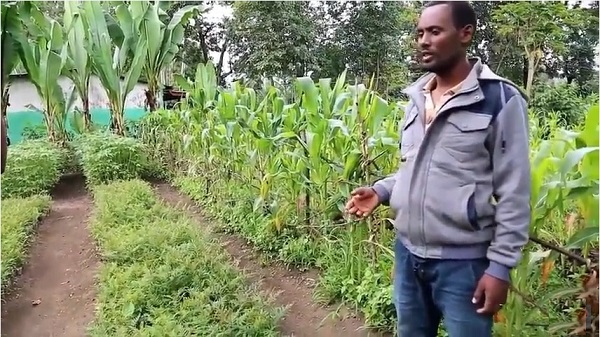
The main objective of Climate Smart Agriculture and Biodiversity Conservation Center is to produce well trained manpower that can help curb and withstand the challenges the agriculture sector faces due to climate change
By Desta Gebrehiwot (The Ethiopian Herald)
Africa Center of Excellence for Climate Smart Agriculture and Biodiversity Conservation (Climate SABC) hosted by Haramaya University is aiming to train efficient agricultural and climate change experts in Africa.
The Center financed by the World Bank came to be operational in 2017 and is currently teaching 51 students drawn from Ethiopia, Kenya, Uganda, Rwanda, Malawi, Tanzania and Zimbabwe in various fields of agriculture and biodiversity.
The major objective of the Center is to produce well trained manpower that can help curb and withstand the challenges the agriculture sector faces due to climate change, says Center leader Prof. Niguse Dechasa.
Africa’s agriculture is highly prone to impacts of climate change and it requires a lots of handwork and expertise knowledge to tackle the problem. In this regard, the Center would play an essential role in building the capacity of professionals working in the area, he adds.
According to Prof. Niguse, Haramaya University has a long standing reputation in agricultural studies and research. The establishment of the Center is another addition that would promote its research activities.
The Center also strives to come up with innovative and problem solving technologies and knowledge that can create tangible impact on communities. And it would also expect to further advance educational and research programming in the fields of agriculture and biodiversity to greater heights, as to the Professor.
Besides serving as a center of excellence, it would also help strengthen the people to people relations among the African nations as it foster linkage among their different learning institutions, he notes
The Center is also collaborating with Ethiopian and other continental universities and agricultural research institutions to find solutions to pressing issues of the agricultural sector, particularly in relation to climate change.
Source: Haramaya University
